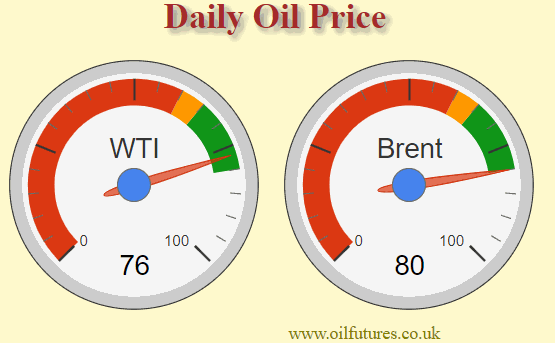The price of Brent crossed the psychologically
important $80 barrier in the early hours, today, undoubtedly causing ripples
across the corridors of power across the world.
As of 10:30 GMT, the prices of two major benchmarks,
WTI and Brent, stood at $76.27 and $80.23 respectively.
It is obvious that the demand picked up much faster
than analysts anticipated it would and it inevitably led to the rise in crude
oil price.
The OPEC+ meeting, scheduled to be on October 4, will
be the focus of analysts, investors, traders and of course, politicians with
the cartel being under enormous pressure to increase the production – or at
least to reverse its production cuts, announced last year, by a significant amount.
Even the analyses by OPEC+ did not anticipate a
rebound in demand on this scale. That was the reason for them to exercise restrain,
when it came to increasing productions.
The main importers, meanwhile, resorted to tapping
their strategic petroleum reserves in order to stem the tide, but to no avail.
As far as the Middle Eastern producers are
concerned, their cautious approach partly stemmed from the evolving Iranian
factor: the assumption was that Iran would be allowed to sell its oil in the
international markets with the revival of the JCPOA, 2015 Iran nuclear deal.
In the last two weeks, the signals in this regard
were positive, indeed: the visit by the Director General of the IAEA,
International Atomic Energy Agency, to Iran and amicable atmosphere it thus
generated raised the hope of the revival of the deal; the speeches made by
Iranian delegation at the UN General Assembly, however, generated signals to
the contrary, last week.
In short, the talks over the revival of the JCPOA
are back in the doldrums. As a result, analysts do not see the feared oil glut
due to Iran’s entry into the crude oil markets with a bang; they expect the
global supply will struggle to meet the demand, unless the OPEC+ move its own
goal posts dramatically in order to appease those who pressurise the group.
On military front, meanwhile, mysterious explosions
and fires continue to rattle the Iranian authorities: a few days ago, there was
a fire in a place run by its elite Republican guards that resulted in the death
of three military men and injuries to quite a few; Iranians say they
investigate the cause of fire.
In Syria, meanwhile, a militant group affiliated to
Iran has come under attack by UFO’s – ‘unidentified flying objects’.
These developments, related to Iran, came at a time when
Israel made it clear it is acting in the ‘present’ with ‘action’ rather than ‘words’
as far as Iran is concerned.
Iranian military commanders, meanwhile, keep issuing
their confidence in dealing with any external threat; these statements are
becoming unusually regular – and frequent.
Analysts may be taking into account the Iranian
factor, in this context, much more seriously than they did months before;
because, any military escalation involving Iran determines the vital flow of crude
oil from the Middle East to the rest of the world, even if producers keep
pumping more to appease the importers.








